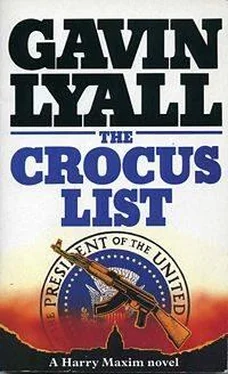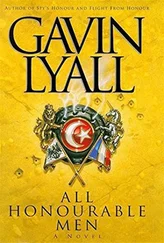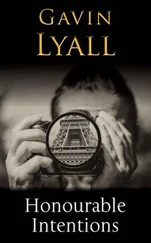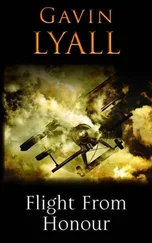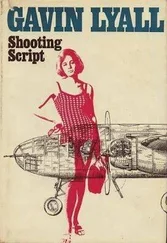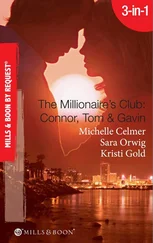Maxim was still incombat kit when he reached the DDCR's office, although he had left his flak jacket somewhere in Dean's Yard and the police had borrowed-after a High Mass of paperwork-the submachine-gun for some meaningless forensic tests. It was a small spartan room with nothing on the pale green walls buta calendar and what might have been a large map hidden by padlocked cupboard doors.
Four men sat around the table in front of the desk: the DDCR, George Harbinger, a bulky middle-aged Lieutenant-Colonel from the Legal Corps and Ferrebee from the Foreign Office. The DDCR introduced Maxim and ushered him to the spare seat. The legal Colonel looked bland, Ferrebee grim.
"You must have had quite a time of it with the rozzers." The DDCR tried to be reassuring. "Cup of tea? Coffee?"
"Nothing, thank you, sir." Maxim managed not to slump in his chair which, being built to the Army dictum that a sore backside makes for prompt decision-taking, wouldn't have allowed it anyway.
"Or a drop of Scotch? I think it's about that time, and past it-and it's George's Scotch anyway, stout fellow."
"Well…" The thought was tempting but the long day wasn't likely to end here.
"He'd like a Scotch," the DDCR decided. "In fact, we'd all like a Scotch." He brought a water jug from his desk.
"I know defence spending's been cut," George grumbled, "but if I'm to take over the whole Army's mess bills…" But he had come prepared, with a set of silver cups to match the big flask in his briefcase.
They drank without more than nods, and after the first gulp Maxim realised how much he had needed it-and thathe'd better sip from now on; the DDCR was watching him covertly. "So you told them what happened-several times, 1 don't doubt. I'm afraid you're going to have to tell us as well-and have you got a copy of your statement to the police? Good man."
One result of Northern Ireland was that the Army was very familiar with its responsibilities and rights after an 'incident'-more so than the Metropolitan Police, Maxim had discovered. He passed the statement to the DDCR who glanced at it, then handed it to the Colonel.
George, who had also gulped at his Scotch, was already refilling his cup. "I'm sorry I got you into all this, Harry-"
"You didnot get him into all this," the DDCR said firmly. "You are still not in the chain of command."
"Nice to have so many people ready to share the responsibility," the Colonel said cheerfully. Ferrebee's glare made it clear he was not one of the share-takers.
So Maxim recited the story yet again. And a recitation was what it had become, recalling a sequence of events that now seemed, with repetition, as inevitable as a stanza of verse or the clock ticking away the minute-it had been no more-from his first sighting of the dark figure to the explosion.
When he had finished, the Colonel looked for permission from the DDCR and asked: "Did the police say anything implying that you might have used more than the minimum force necessary?"
"They asked why I'd fired."
"And you told them," the Colonel consulted the report, "that the man had a grenade with the pin pulled." He looked up. "And you thought he was going to throw it at you?"
Maxim took a sip before answering. "Yes, I thought that at the time… but now, I think he was trying to commit suicide."
There was a sharp silence. Then the DDCR barked: "Why?"
"He took out the grenade-he had it in a pocket in his cassock, I think-and called something like: 'You'll get hurt.' I saw the lever go and I shot him. I think I hit him inthe stomach or a bit higher. He dropped the grenade, and then he seemed to throw himself on it. He must have got his hands on it. It blew his hands and face off."
He found he was clenching his own hands in an attitude of prayer, pulled them loose and reached for the last of his whisky. George promptly poured him another.
"That must be speculation," the Colonel murmured. "What matters is the interpretation a trained soldier, acting under orders, would put on a situation-"
"Didyour orders include chasing shadowy figures through the Cloisters?" Ferrebee demanded, his voice rough as the scar tissue on his face. "Or were you supposed to stay with the Saracens in Dean's Yard-which you were supposed to be commanding? Or is there something else about which my Office was not kept fully informed?"
George smiled. "James is aleetle distressed that his Office -the Office, I beg your pardon-doesn't seem to have grasped the extent of the security laid on for the President."
"But not laid on for the twenty-something other heads of state and prime ministers of friendly nations. Your Department doesn't have to explain that to them."
George shrugged. "Just point out that it was the President who got shot at, not them. QED."
Ferrebee clasped his hands-one also fire-scarred-on the table. "In Norwegian, too."
Maxim coughed politely and caught the DDCR's eye. "Could I know what did happen in the Abbey, sir? The police didn't-"
"You don't know?"
"No, sir."
"Good Lord. I suppose they didn't want to influence you… Well: there were three shots from a Russian AK-47 rifle, they found that at the firing point. Up on a ledge behind some television lights in the South Transept. It had jammed, apparently, or he'd probably have massacred the whole… Well, he killed Paul Barling, Junior Minister in Mr Ferrebee's Office, nobody else, but several got wounded. I believe most of it was chips of stone from die pillars."
"It must be rather frightful," George said contentedly, "for a politician to be killed by mistake for someone else. The final humiliation."
"Your taste really is rather poor, George," Ferrebee said stiffly. "I will put it down to the time of day. I'd better get back to the Office. I hope -1 would like to say trust-that we shall be kept informed of any developments." He loped out, leaving the small room seeming spacious.
George went on calmly: "A ricochet hit the Norwegian Chief of Staff in the arm-that's what Jim was talking about-and another nicked Lady Micheldever in the backside. Mind, it would be difficult to miss a target that size, even in the Abbey."
The DDCR gave A Look. "/ would put it down to the drink. "
"That was exactly what Jim meant."
The legal Colonel said thoughtfully: "It would be a pity to build up enmity in the Foreign Office… How influential is Mr Ferrebee?"
"Not very, thank God," the DDCR said. "He's more or less their travel agent, arranges diplomatic visits-ours there, theirs here. Not exactly at the top of the tree, considering he must be close to retirement."
"Comes of joining the Office late," George explained. "Makes it seem your second choice, and the Office is second to none, least of all in selfesteem. Jim started out to be an admiral."
The Colonel touched the side of his own face. "Was that… ah, erm?"
"He crashed a plane on a carrier, and I gather it didn't do his eyesight much good either. Blind eyes have gone out since Nelson's day. Personally, I'd've said that anybody who tries to land aeroplanes on ships is barmy enough to be an admiral, whether he can see where he's going or not."
The DDCR clearly felt this wasn't in the best of taste, either, but a lifetime in the Army had persuaded him that the Navy could look after itself. "So, now, where have we got to?"
"A Russian rifle," Maxim suggested.
That brought a freeze. Then George shrugged andsaid: "All right, let's get it on the table: was it Kilo Golf Bravo?"
It was the latest Whitehall jargon to call intelligence organisations by their initials in radio code. It didn't prove you knew anything new about them, but not to use it proved you knew nothing at all.
The DDCR sighed. "This is your side, George. It could be just some loony who got hold of a Russian weapon -now why do I say that?" He examined his own instincts. "I suppose I don'twant it to be the Bravoes. Felt just the same way when Kennedy got killed. But we have to face facts…"
Читать дальше
